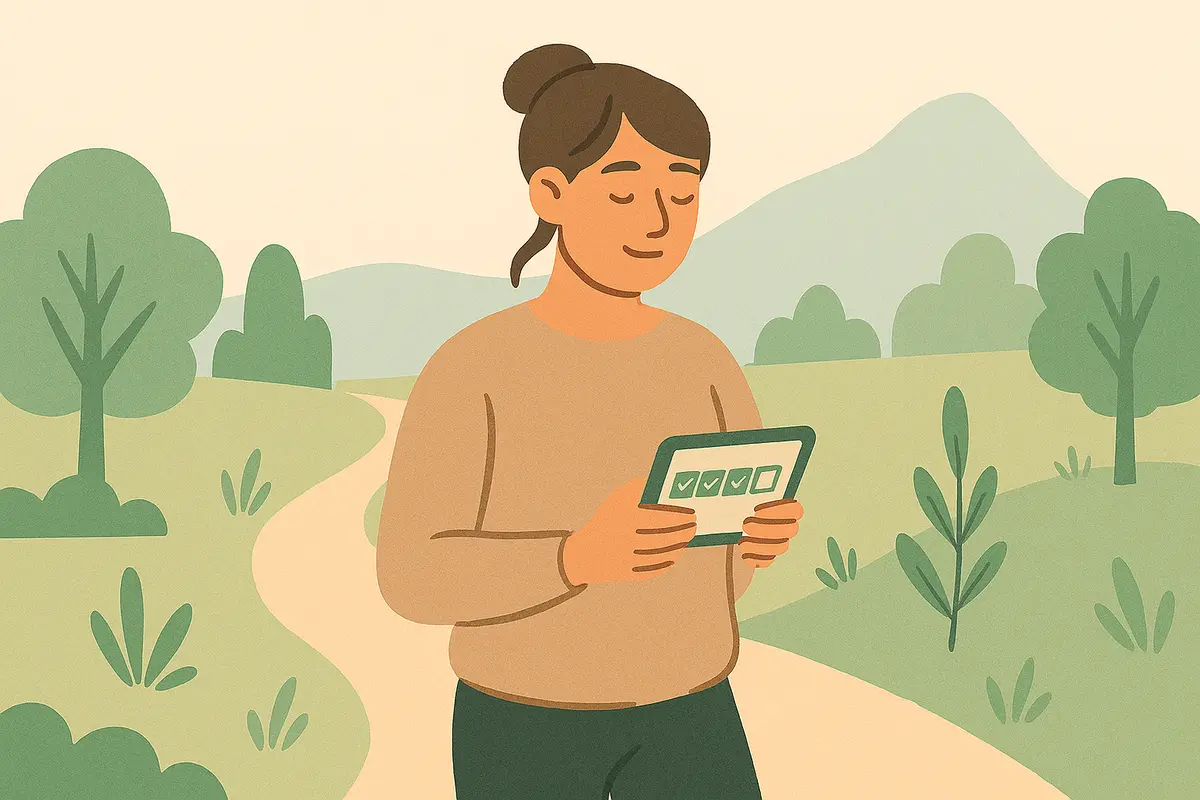An anxiety skill rating scale systematically evaluates the effectiveness of anxiety-management techniques immediately after use, creating personalized data about which strategies work best for your unique emotional patterns within 5-10 minutes of practice documentation.

Drowning in anxiety management advice but struggling to identify which strategies actually work for your unique situation? Finding yourself repeatedly trying coping techniques that provide minimal relief while overlooking approaches that could genuinely help? The problem isn't lacking strategies—it's lacking systematic insight into which specific techniques effectively regulate your individual emotional patterns.
This evidence-based approach transforms scattered anxiety management attempts into a data-driven toolkit through immediate effectiveness evaluation. An anxiety skill rating scale creates personalized insights about which techniques work best for you, eliminates guesswork from crisis intervention, and builds evidence-based coping plans. Research demonstrates that systematic self-monitoring significantly improves emotional regulation outcomes.
Anxiety skill rating scales operate through multiple evidence-based mechanisms that enhance emotional regulation and optimize coping strategy effectiveness. The fundamental approach leverages self-monitoring theory, which demonstrates that systematic observation and evaluation of behaviors significantly increases self-awareness and promotes targeted behavioral improvements.
The practice works through what researchers call "metacognitive awareness" - developing the capacity to observe and evaluate your own emotional regulation processes. This "stepping back" perspective enables more objective assessment of coping strategy effectiveness, reducing the emotional bias that often clouds evaluation during or immediately after anxiety episodes.
One critical mechanism is the creation of "implementation intentions" based on effectiveness data. By identifying which strategies work best in specific situations, you develop clearer if-then plans: "If I experience social anxiety, then I will use the grounding technique that consistently rates 8+ effectiveness."
The immediate rating component leverages memory consolidation principles from cognitive neuroscience. Evaluating effectiveness while the experience is fresh creates stronger memory encoding for both the technique details and its outcomes, improving future recall and implementation during emotional distress.
Rating scales also work through reinforcement learning mechanisms. Strategies that receive high effectiveness ratings become more likely to be used again, while low-rated approaches are naturally deprioritized. This creates a self-optimizing system that gradually improves your coping repertoire over time.
The practice addresses what psychologists call "emotional granularity" - the ability to make fine-grained distinctions between emotional states and their triggers. By rating effectiveness across different contexts and anxiety types, you develop more sophisticated understanding of your emotional patterns and appropriate responses.
From a cognitive behavioral perspective, systematic rating helps identify the relationships between specific techniques, thought patterns, and emotional outcomes. This awareness enables more targeted interventions and prevents reliance on strategies that provide only temporary or superficial relief.
The documentation aspect creates what researchers term "behavioral evidence" against negative thought patterns about coping ability. Each high-effectiveness rating serves as concrete proof of your capacity to manage anxiety, directly challenging thoughts like "nothing helps" or "I can't cope."
Additionally, the pattern recognition component engages executive function skills including working memory, cognitive flexibility, and analytical thinking. Regular practice of these skills through rating and reflection builds cognitive resources that support emotional regulation during challenging situations.
The systematic approach also leverages deliberate practice principles from skill acquisition research. By providing specific feedback about performance outcomes, rating scales enable targeted refinement of technique implementation rather than generic repetition of coping strategies.
"I struggle to rate effectiveness objectively during emotional distress" - This is common and normal. Rate when emotionally calmer, even if several hours later, and focus on overall impact rather than requiring perfect objectivity. Consistency matters more than precision initially.
"My ratings seem inconsistent or confusing" - Extend tracking periods to 4-6 weeks before analyzing patterns, include more contextual details about implementation and circumstances, or simplify rating criteria to reduce complexity until patterns become clearer.
"I don't see clear patterns in my effectiveness data" - Consider whether you need more specific rating categories, longer tracking periods, or different technique implementation approaches. Sometimes effectiveness patterns only become apparent with extended data collection or refined evaluation criteria.
"Rating makes me feel more anxious about my anxiety management" - This suggests rating criteria may be too rigid or perfectionistic. Focus on learning and experimentation rather than performance evaluation, and consider taking breaks from rating if it increases rather than reduces anxiety.
"My most effective strategies still don't provide complete anxiety relief" - This is normal and expected. Anxiety management typically involves reduction rather than elimination of symptoms. Adjust rating criteria to recognize meaningful improvement rather than requiring complete anxiety resolution.
"I forget to rate strategy effectiveness consistently" - Link rating to existing habits, set phone reminders, or use apps with notification features. Studies show that reminder systems significantly improve self-monitoring compliance and effectiveness.